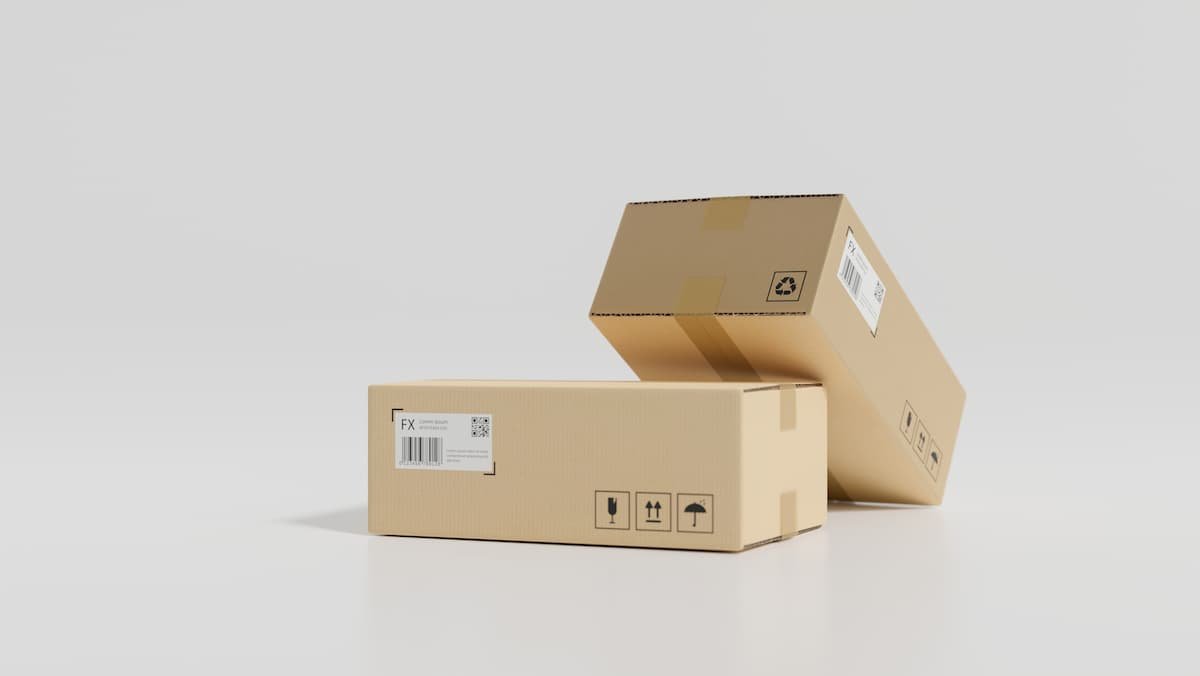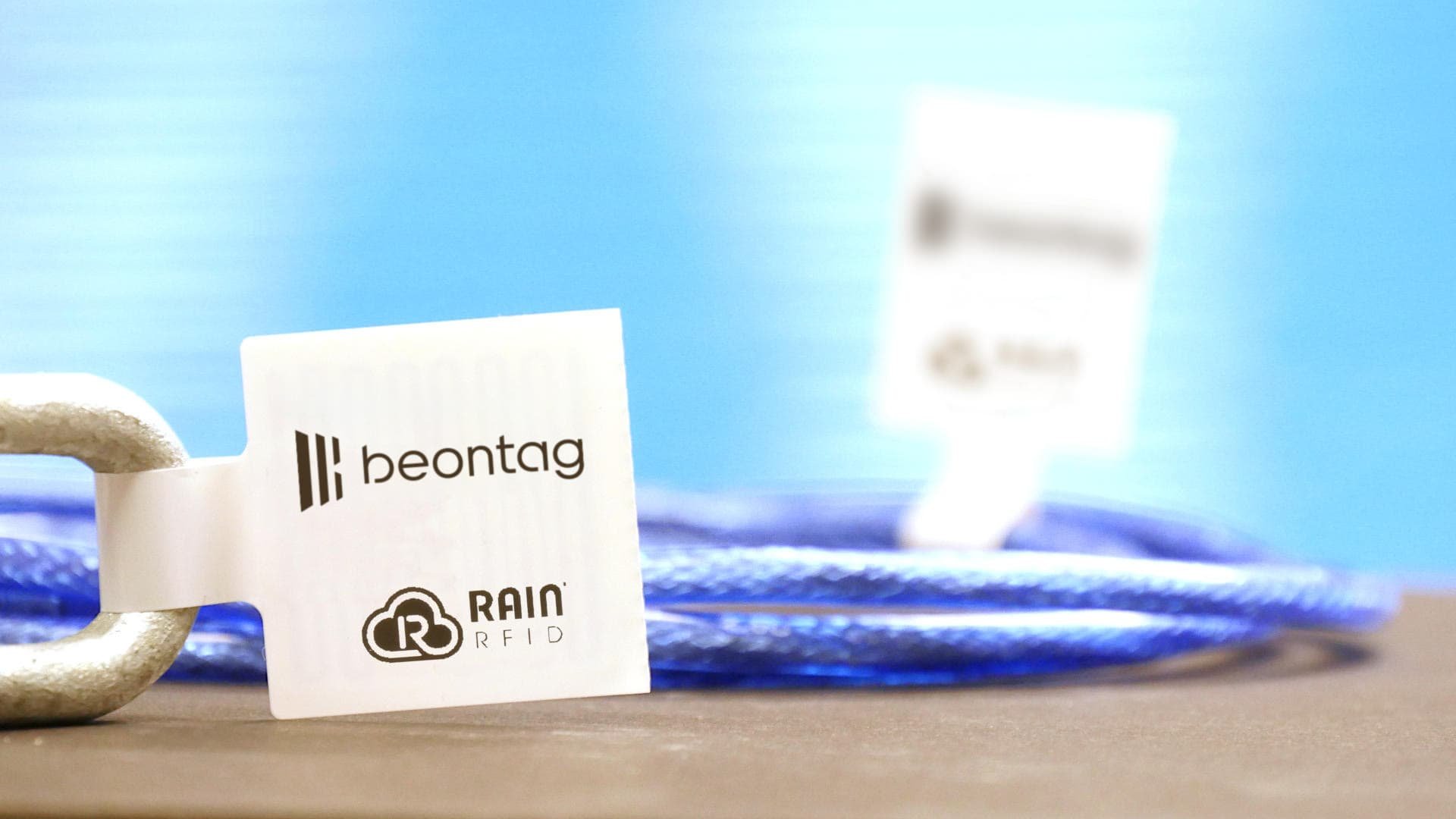
How to Choose the Right Pressure-Sensitive Adhesive for Your Label Printing
Stay up to date, subscribe to our newsletter!
SubscribeRAIN RFID is a passive UHF RFID technology that enables wireless item identification at scale, improving efficiency, visibility, and automation across industries. Learn more details and discover how Beontag helps businesses unlock its full potential.
Radio Frequency Identification (RFID) has become an essential tool in modern supply chain operations, healthcare, and retail.
As industries demand more visibility, automation, and real-time data, new technologies like RAIN RFID are taking center stage.
This advanced form of RFID offers the accuracy, scalability, and cost-efficiency needed in today’s fast-moving markets.
However, companies often struggle with inefficient inventory management, manual errors, and lack of visibility into assets and goods.
Traditional barcode systems are limited by line-of-sight scanning, which slows processes and introduces human error.
Businesses seeking real-time insights need more reliable tools to keep up with growing operational challenges.
Beontag’s global expertise in RFID provides the solution by enabling fast, wireless, and accurate item identification to empower businesses to automate workflows, improve decision-making, and enhance customer experience.
Keep reading to understand more.

Radio Frequency Identification (RFID) is a wireless system that uses electromagnetic fields to transfer data between a tag and a reader.
This technology is widely used to identify, track, and manage assets. RFID systems are typically divided into low-frequency (LF), high-frequency (HF), and ultra-high frequency (UHF) technologies.
Each operates at different ranges and is used for different applications.
UHF RFID provides longer read distances and faster data transfer, making it ideal for supply chains, logistics, and large inventory environments. RFID can be passive, active, or semi-passive.
Passive RFID, such as RAIN RFID, does not require a battery in the tag. Instead, it is powered by the reader’s signal, making it cost-effective and scalable for mass deployment.
This explains why passive RFID is increasingly adopted in industries like retail, healthcare, and transportation.
Check out here if you want to see more details about RFID tags and label technology.
Like we previously explained, RAIN RFID is a passive RFID called UHF RFID technology which is based on the EPC Gen2 standard.
The term “RAIN” connects RFID to the Internet of Things (IoT), emphasizing its ability to link everyday items to cloud systems.
With RAIN RFID, billions of items can be uniquely identified and tracked in real time.
Unlike NFC or HF RFID, which work at shorter ranges and are often used for payment systems or access control, RAIN RFID is designed for long-range applications.
It typically works within a range of a few centimeters up to 10 meters, depending on the environment and reader configuration. This scalability makes it suitable for warehouses, hospitals, and retail stores.
The use of RAIN RFID answers the question: What is RFID used for? Beyond simple tracking, it enables process automation, reduces shrinkage, and enhances visibility across the supply chain.
By integrating with cloud platforms, businesses can transform physical assets into digital data points, enabling smarter analytics and decision-making.
RAIN RFID works by embedding a small, passive tag with a unique identifier into items, packaging, or assets.
These tags communicate with RFID readers using UHF radio waves. The readers then transmit the collected data to a software platform, where it is processed and made accessible to businesses in real time.
The system consists of three main components:
Because RAIN RFID does not require line-of-sight, multiple tags can be read simultaneously, dramatically improving speed and accuracy compared to barcode systems.
This capability is crucial in environments where thousands of items move daily, such as retail distribution centers, hospital supply chains, or airport baggage handling systems.
See how RFID tags work throughout different applications and businesses.
RAIN RFID comes with several features that make it unique compared to other tracking technologies.
These features define its strength and its value for industries seeking automation and visibility.
RAIN RFID supports reading ranges up to 10 meters or more, depending on antenna design and reader power.
This makes it ideal for warehouse management, retail stores, and logistics hubs where bulk scanning is required.
Unlike NFC, which works within centimeters, RAIN RFID can monitor entire shipments at once.
A key advantage of RAIN RFID is its ability to capture hundreds of tags per second.
This feature reduces manual labor and accelerates inventory counts, allowing businesses to perform real-time stock checks without interrupting operations.
Beontag’s high-quality tags ensure consistent and accurate reads across different environments.
Because RAIN RFID tags are passive, they do not need batteries. This significantly reduces costs, enabling businesses to deploy millions of tags across operations.
Combined with Beontag’s sustainable RFID label solutions, companies can scale without compromising environmental responsibility.
RAIN RFID applications are vast, and adoption continues to grow. Industries from retail to healthcare are leveraging technology to improve visibility, streamline operations, and enhance customer experiences.
Beontag has played a key role in enabling these transformations through innovative RFID solutions tailored to each sector.
In retail, RAIN RFID ensures accurate inventory tracking and improved operational visibility.
A strong example is Beontag’s collaboration with Oxford, where a fully integrated RFID environment was implemented.
The project set a benchmark for the industry, enabling faster processes, better customer experiences, and increased efficiency through seamless product identification and management.
Although healthcare organizations have unique needs, the principles of asset management and safety are similar across industries.
Beontag’s partnership with AED Group demonstrates how RFID improves equipment management and reliability.
In healthcare, the same approach ensures medical devices, surgical kits, and critical supplies are always traceable and available when needed, reducing errors and improving patient safety.
Beyond retail and healthcare, RAIN RFID plays a transformative role in industrial sectors.
For example, Beontag worked with Michelin to revolutionize tire manufacturing using RFID, ensuring full traceability across production.
Another case is Voestalpine, which improved rail safety with asset tracking solutions. These applications highlight the versatility of RAIN RFID across industries.
See more details about this case.
The benefits of RAIN RFID extend across operational, financial, and customer experience dimensions.
Organizations adopting the technology report improvements in efficiency, visibility, and cost savings.
RAIN RFID provides instant visibility into asset locations, inventory levels, and supply chain movement.
This accuracy reduces errors and minimizes shrinkage, enabling businesses to operate with confidence.
Beontag’s tags are designed to maintain reliable performance even in complex environments.
By automating manual processes like stock counting, RAIN RFID reduces labor costs and accelerates workflows.
Businesses save time while freeing employees to focus on higher-value tasks. Beontag’s scalable solutions allow companies to deploy cost-effective RFID at both local and global levels.
With RAIN RFID, retailers can maintain better stock availability, healthcare providers can improve patient safety, and logistics firms can deliver faster.
These improvements directly translate to higher customer satisfaction. Beontag’s customer-focused solutions ensure that businesses not only adopt the technology but also maximize its value.
As industries move toward digital transformation, RAIN RFID is set to become even more critical.
With advancements in IoT, AI, and cloud computing, technology will evolve to offer smarter analytics, predictive insights, and seamless integration with enterprise platforms.
However, some still ask: Why is RFID controversial? Concerns about data privacy, security, and cost have sometimes slowed adoption.
The industry has responded with encryption, secure authentication, and better system design.
With trusted providers like Beontag, companies can adopt RAIN RFID confidently, knowing challenges are mitigated.
The future also points toward sustainability. Beontag, a global leader in RFID solutions, is innovating eco-friendly tags and labels, reducing waste and environmental impact.
By aligning RAIN RFID adoption with sustainability goals, businesses can build smarter and greener operations simultaneously.
RAIN RFID is transforming industries by delivering efficiency, visibility, and automation.
From retail to healthcare, logistics to aviation, its applications are broad, and its benefits proven. The key to successful adoption lies in choosing the right partner.
Beontag offers globally recognized RFID tags, labels, and solutions tailored to unique business needs.
With expertise across industries and a commitment to innovation and sustainability, Beontag helps companies to harness the full potential of RAIN RFID.
Now is the time to take your operations to the next level. Visit our catalog and contact us now to discover how RAIN RFID can transform your business with personalized solutions.
